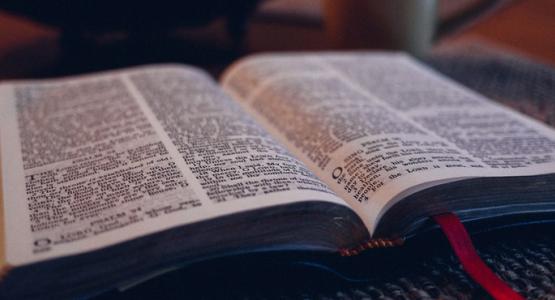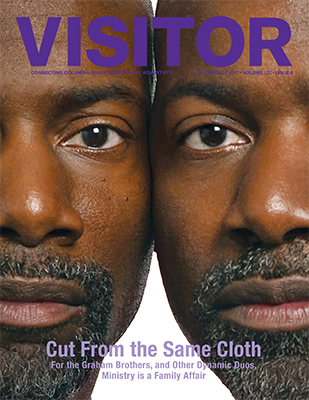
Psalm 1: The Two Ways
Blog by Rob Vandeman
Early Church leader and scholar Jerome quoted the opinion of some that the first psalm is “the preface of the Holy Spirit” to the Psalter. It is certainly a very apt introduction. Two particular themes are found in it, which recur in many other psalms.
The first is the clear-cut distinction between the righteous and the wicked. The Bible as a whole, and specifically the Wisdom Literature, divides humankind into these two absolute categories, and does not recognize a third. Psalm 32, 36 and 112 also compare and contrast the righteous and the wicked.
The second theme concerns the present fortunes and the ultimate destinies of human beings. The first and last words of Psalm 1 indicate the alternatives. Blessed is the righteous person who delights in God’s law; the ungodly, on the other hand, will perish. This process of “blessings” and “cursing,” as Jeremiah called it when he perhaps elaborated on this psalm (see Jer. 17:5-8), is already discernible in this life.
In handling these two themes, the author of Psalm 1 is only anticipating what Jesus Himself was to teach, that men and women are either on the broad road that leads to destruction or the narrow way that leads to life (Matt. 7:13,14).
The righteous person is described first negatively, then positively. He or she does not walk in the counsel of the wicked or stand in the way of sinners or sit in the seat of the scornful. These expressions have been carefully composed in a triple set of parallels: “walk, stand, sit,” “counsel, way, seat,” and “wicked, sinners, scornful.” Moreover, a downward progression is implied. The godly do not model their conduct on the advice of bad people. Further, the godly do not linger in the company of persistent evildoers; still less remains permanently among the cynical who openly scoff at God.
Instead of taking the lead from such people, the godly make God’s Law the rule. This law (Torah) refers to more than the ten commandments, or to even all the rules and regulations of the Law of Moses, but to all of God’s revelation as the guide of life, which, although given through Moses and the prophets, is yet the law of the Lord, a phrase virtually equivalent to “the word of God.”
This, then, is the characteristic of the righteous. For guidance regarding daily conduct they look not to public opinion, the unreliable fashions of the godless world, but to the revealed Word of God, in which they delight and meditate. As a result they are like a tree planted by streams of water (verse 3).
The metaphor is a common one in the Bible. Whatever kind of tree is in mind, it clearly enjoys the secret of perennial health and vigor, its fruit ripening in its season, and its leaf not withering even under the heat of the sun; for as the tree draws constant nourishment from the water through its roots, so through daily reflection on God’s Word the righteous refresh and replenish their souls in God. Such a tree is firmly planted; such people, like Joshua, prosper in whatever they do (Joshua 1:8).
But not so the wicked! Their present condition and future destiny are entirely different. Instead of being like a fruitful tree, they are like dry and useless chaff. Instead of being planted by the waterside, they are driven by the wind.
Again the metaphor was a familiar one in Bible days and lands (compare Psalm 35:5; Isaiah 17:13; Matt. 3:12). The threshing floor was usually a hard, flat surface situated on a hill, well exposed to the wind. The wheat was lifted by large winnowing fans or shovels and thrown into the air, so that the precious grain would drop down and be garnered, while the light husks of the chaff would be scattered to the four winds.
The wicked are like chaff in two senses. They are desiccated and unprofitable in themselves; and they are easily blown away by the judgment of God. The basic idea behind the Hebrew word for the wicked appears to be one of “restlessness” (Isaiah 57:20, 21). The tree is planted firmly, but the chaff is unstable. When God begins to sift them in His present activity of judgment, and specifically when the final day of judgment comes, they will not stand. Not even now can they stand in the assembly of the righteous, for they do not belong to the godly remnant of His people.
Verse 6 is a general conclusion to the whole psalm, distinguishing between the way of the righteous and the way of the wicked. We are told that the Lord watches over the way of the righteous, whereas the way of the wicked will perish.
 Read the July/August 2017 Visitor:
Read the July/August 2017 Visitor:

Add new comment